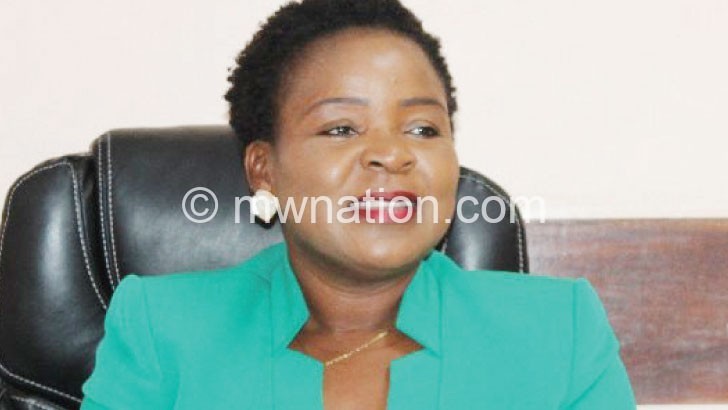Macra to regulate SIM Card registration
Despite several interventions, including anti-fraud awareness campaigns, unsuspecting Malawians continue to be duped of their money by fraudsters using mobile money platforms. Our Contributor GRESHAM NGWIRA sought to hear from Macra communications manager Clara Ngwira how the regulator is tackling this problem in view of the much talked-about SIM card registration, which many thought was meant to curb such theft. Excerpts.

Q: Years ago Malawi Communications Regulatory Authority [Macra] ordered mandatory SIM card registration to, among other things, help trace criminals who steal through phones. How much has this initiative achieved?
A: Following the enactment of the Communications Act, 2016 and its subsequent operationalisation on June 1 2017, all users of telephone numbers and SIM cards for voice telephony are required to register with the mobile network operators [MNO], dealers, agents and distributors of the MNO.
The Act also requires mobile network operators to collect name, identity card number and address for persons and business licence or certificate of incorporation and tax payer identification number [TPIN], where applicable, to meet Know Your Customer [KYC] requirements.
Registration requirement enhances identification of the subscribers, which has numerous benefits, including traceability of culprits and verification of identity of persons where the telephone number is being used for mobile banking transactions. This is important, especially now when phones are not only used for voice services but also for banking, Internet and other services.
Since commencement of the SIM card and number registration, MNOs are able to verify transactions to be made by the subscribers and trace criminals. Financial institutions have also been able to determine which number to be allowed to transact on its platform, including verifying information based on KYC details.
Despite the strides, the system has faced challenges, including multiple registration of subscribers because the law does not limit the number or SIM cards one can hold. There has also been abuse of the system by those purporting to register the cards or numbers in the name of minors and others without legal capacity to register in their own names. Consequently, the positive effect of registration requirement has been derailed.
There has also been an increase in mobile fraud. However, this fraud is because, among others, fraudsters take advantage of innocent subscribers who sometimes are overtaken by alluring messages that they have won a competition [of course, which they never joined]. Other fraudsters are cheating the unsuspecting victims that they have been nominated for MtukulaPakhomo initiative, Covid-19 benefits, and that funds have been wrongly transferred into their mobile money accounts and they should return.
However, using the registration database, the MNOs are able to trace the culprits, and some have already been prosecuted and punished accordingly.
Q How has Macra responded to this sad development?
As mitigation, Macra has on several occasions issued statements warning subscribers to keep their phone and mobile money login details private. Macra is also developing SIM card registration regulations [a form of subsidiary legislation] to, among other things, limit the number of SIM cards or numbers that can be held by one person. Once the regulations are finalised, we will make recommendations to the Minister of Information to promulgate them under Section 200 of the Act.
Q: Despite various interventions, including SIM registration, fraudsters, most of whom register their cards in other people’s names, continue duping unsuspecting Malawians. What is Macra doing about this?
A: Macra does not tolerate registration of SIM cards in each other’s name, except where the person on whose behalf the registration is being sought has no legal capacity to register on their own, such as minors. This
registration.
Let me also clarify that the SIM card registration is a tool being used to address fraud as it provides information to MNOs, which can be used to trace culprits.
Q: What is your message to fraud victims?
A: People should exercise caution on use of mobile phones, especially on unsolicited messages. They should not entertain phone calls from strangers who they never expect.
Further, they should not give out on the phone personal information such as name, personal identity, home address or birthday to strangers.
Do not believe everything you receive on your phone, especially from strange numbers, including unexpected funds and messages that you have won a competition which you did not enter. Verify with relevant government ministries, departments, agencies or police if not sure.
Do not access or use unexpected funds in your mobile money account even if accompanied by a message purporting to transfer funds to you. Report the matter to Financial Intelligence Authority or to your nearest police formation.
Q: Final remarks?
A: Consumers are entitled to grievance procedures provided by MNOs and how to access the same. Since invariably the resolution of the complaints involve tampering with private information of subscribers, courts need to authorise the search, hence the need for warrant of search. Police should help in lodging the warrant with the courts. This is a normal process and consumers should not feel burdened. n
Ngwira: There has also been an increase in mobile fraud





